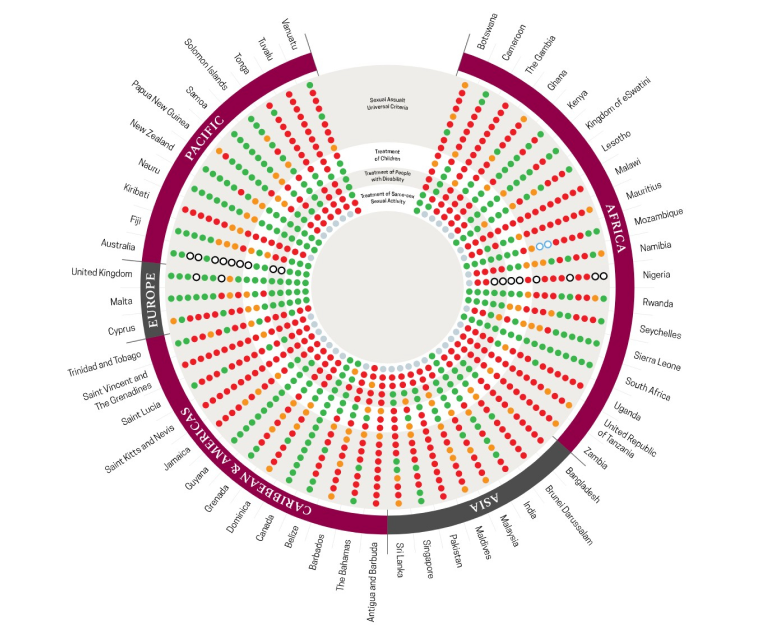This study is part of a research series commissioned by the Human Dignity Trust on behalf of the Equality & Justice Alliance, as part of a 2-year programme announced by the UK Government in April 2018.
A core focus of the 2-year programme was support for reform of colonial-era sexual offences laws that discriminate against women and girls and LGBT+ people, among others. As part of that support, the Trust—with the assistance of experts from around the Commonwealth—produced research and information designed to inform, inspire and assist Commonwealth governments that are considering embarking on reform of these laws. This study complements other independent research that the Trust has undertaken, including a series of practical in-depth case studies on the process of sexual offences law reform in various Commonwealth countries.
The study will assist Commonwealth countries that are seeking to reform their sexual offences laws by providing models of ‘good practice’ laws from other Commonwealth countries across all regions of the world. While this report is not a technical or legislative drafting guide, it provides technical support and encouragement for countries that are beginning the process of undertaking the necessary legislative reform to bring certain categories of sexual offences laws into compliance with international human rights law for the better protection of their citizens and societies.
The focus of this study is on good practice legislation in four main areas of law: rape/sexual assault; age of consent for sexual conduct; treatment of consensual same-sex sexual activity between adults; and, sexual offences in relation to people with disability. We consider a representative sample of sexual offences laws from Commonwealth jurisdictions across each of the Commonwealth’s five regions: Africa, Asia, Caribbean and the Americas, Europe, and the Pacific. Where appropriate, the study also considers relevant common law developments.
A country’s laws, if they are non-discriminatory and enforced consistently and fairly, can play a vital role in protecting people equally, deterring people from committing offences, providing redress for those affected by violations, and eliminating stigma and abuse of vulnerable or marginalised groups. They can also protect and guarantee fundamental human rights, and encourage shifts in attitude and behaviour at a societal and cultural level. Several countries in the Commonwealth have updated their sexual offence laws to remove their discriminatory impact and language, for example, defining rape/sexual assault in gender-neutral terms, eliminating marital rape exemptions, applying consent-based (rather than act-based or personal characteristic based) legal frameworks for sexual activity, and equalising the age of consent regardless of sex, gender or sexual orientation. These are the laws highlighted in this study.
Download the report



